Integrating Somatic Techniques in Therapy
Join our 3-Month Online Training and learn core concepts of somatic therapy, gain effective somatic tools, and integrate them into your practice.
-
13 Teachers

-
A 3-Month Training

-
13 Workshops

-
55 Hours in Total

-
Practice Facilitators

-
Live + Recording

-
25.5 CE hours

experiential activities:
-
13 Guided Somatic Explorations

-
13 Practice Circles

-
Demo Sessions

-
Q&A Sessions

-
Case Consultations

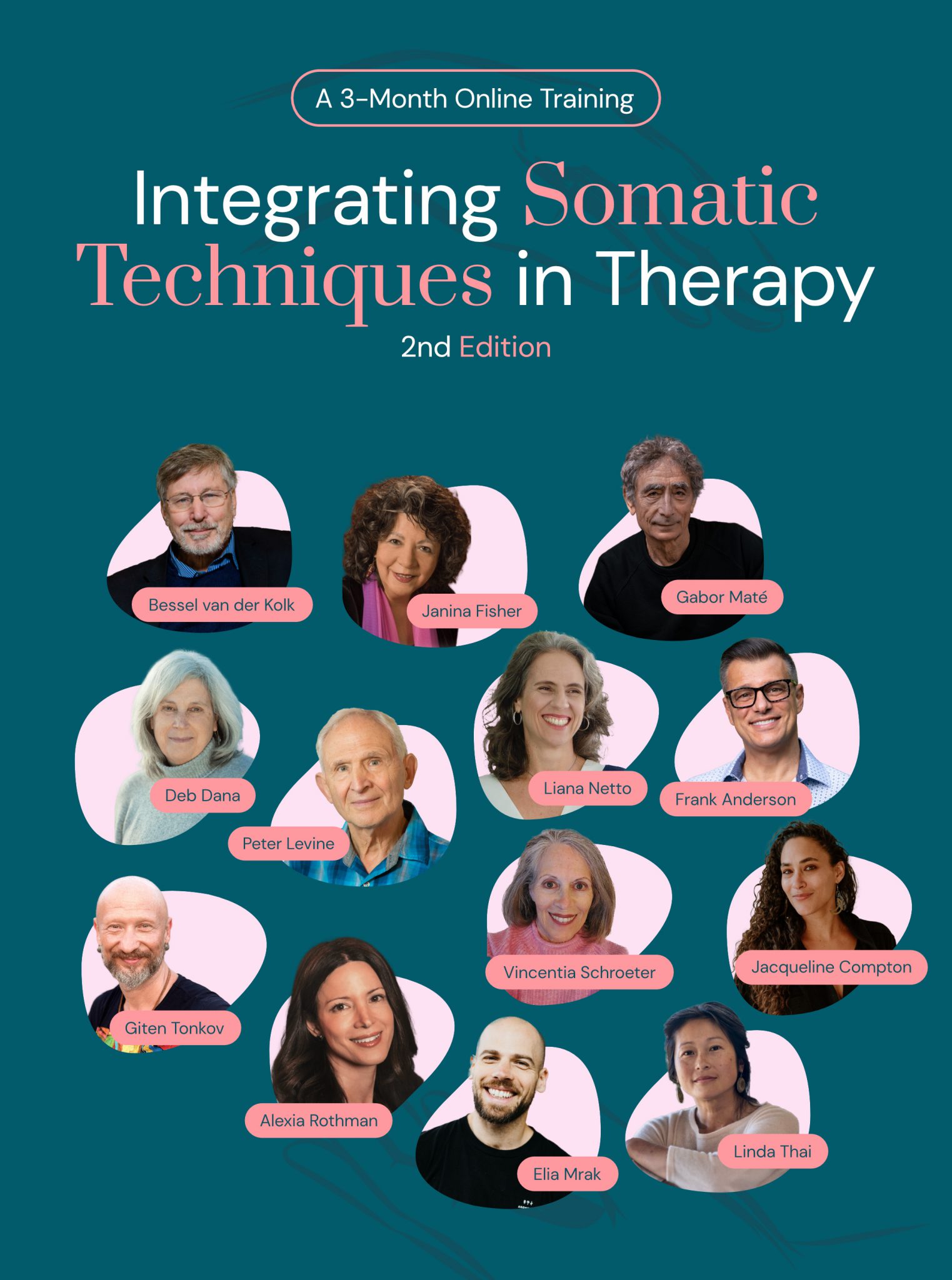
About our 3-Month Somatic Therapy Training

Bringing the body into the therapy process
Being aware of the importance of bringing the body into the therapy process, you may have asked yourself these questions:
- How to effectively introduce somatic techniques into your therapy room (regardless of the modality you use)?
- How to invite clients to experience somatic interventions (especially those, who are hesitant to try new things)?
- How to effectively use somatic techniques while working online?
- How to choose the right somatic tools for specific issues?
We have prepared a 3-month (55 hours) online training with some of the leading minds in the field of somatic therapy to provide detailed answers to these questions.
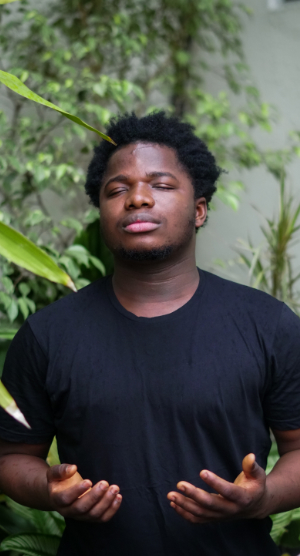
Training in a nutshell
Here’s our somatic therapy training in a nutshell:
- World-class faculty: Frank Anderson, Jacqueline Compton, Deb Dana, Janina Fisher, Bessel van der Kolk, Peter Levine, Gabor Maté, Elia Mrak, Liana Netto, Alexia Rothman, Vincentia Schroeter, Linda Thai, Giten Tonkov.
- 13 Experiential Workshops with hands-on learning, demonstrations, Q&A, group work and sharing.
- 13 Practice Circles meetings for guided experientials, student connection, and support from Practice Facilitators.
- 13 Guided Somatic Explorations to move, open up to your body and create a deep relationship with it.
- 6 hours of Pre-recorded Videos available before the start of the training.
- 6 hours of Case Consultation Calls in 2025 for personalized guidance with somatic therapy issues that arise in your practice.
- A carefully curated selection of techniques from leading modalities like Polyvagal Theory, Sensorimotor Psychotherapy, Somatic Experiencing, Internal Family Systems, Bioenergetic Analysis and Breathwork.
- A Certificate of Completion is provided.

By attending this training, you will:
- Acquire a set of somatic skills and tools, learn how and when to use them, and how to integrate them into a therapy session regardless of your primary therapy modality.
- Gain confidence in explaining and introducing somatic work, even to clients who are hesitant and skeptical (along with a list of strategies for dealing with client objections to somatic techniques).
- Learn how to safely use somatic techniques both in-person and online.
- Experience somatic explorations on your own, allowing you to connect with your body and truly embody the somatic approach to psychotherapy.
- Support your clients in recognizing and processing trauma that has been stored in the body.
- Connect with like-minded mental health professionals in a safe space for practice, sharing, Q&A, and networking.
- Save time researching various somatic tools and be introduced to ones that are known to be effective, useful, and easy to integrate into your practice.
Meet the teachers who will lead the training.

Janina Fisher
Trauma-Informed Stabilization Treatment
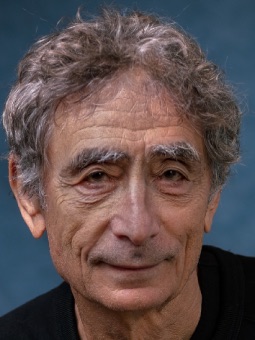
Gabor Mate
Compassionate Inquiry
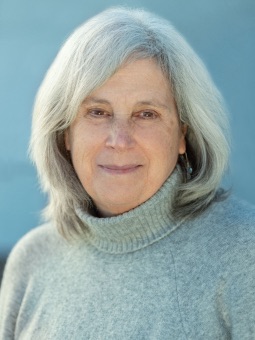
Deb Dana
Polyvagal Theory
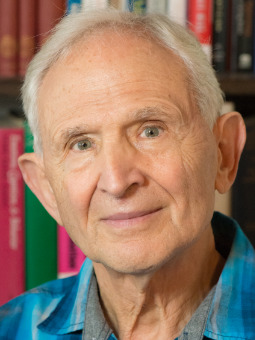
Peter Levine
Somatic Experiencing®
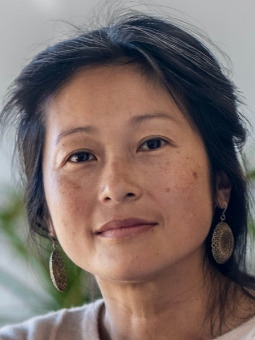
Linda Thai
Multi-Modality Trauma Specialist

Bessel van der Kolk
Brain, Mind, and Body in the Healing of Trauma
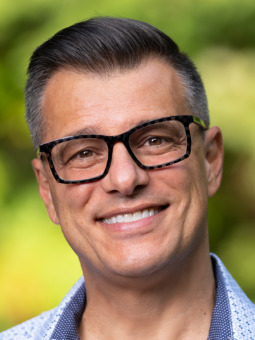
Frank Anderson
Internal Family Systems
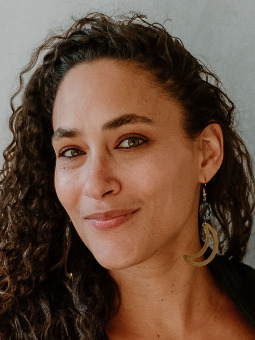
Jacquie Compton
Sensorimotor Psychotherapy
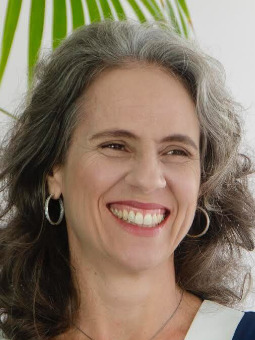
Liana Netto
Somatic Experiencing
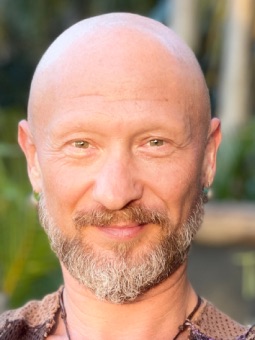
Giten Tonkov
Breathwork
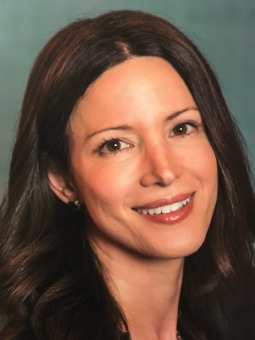
Alexia Rothman
Polyvagal Theory, Internal Family Systems
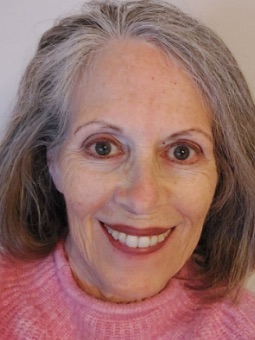
Vincentia Schroeter
Bioenergetic Analysis
Program Structure
13 Live
Sessions
3.5 hours each
Case Consultation Calls 6 hours
Pre-recorded Videos 6 hours
55 Hours
in Total


Workshop
2 hours

Short Break
10 minutes

Guided Somatic Explorations
30 minutes

Practice Circles
50 minutes
Session Structure
During this 3-month training, we will meet once a week for 3,5 hours each Tuesday
Each session kicks off with an engaging two-hour workshop*. Following a brief ten-minute break, you’ll have a chance to connect with your body during a Guided Somatic Exploration session. After that, you’ll join your Practice Circle - an experiential space to deepen your skills in a small, facilitator-supported group.
All Workshops and Guided Somatic Explorations are taking place live and will be recorded.
*The only exceptions will be sessions 8 and 12 ending with interviews. You can find their detailed schedule here.
Workshop Schedule
Sep 17 (Tue)
Vincentia Schroeter
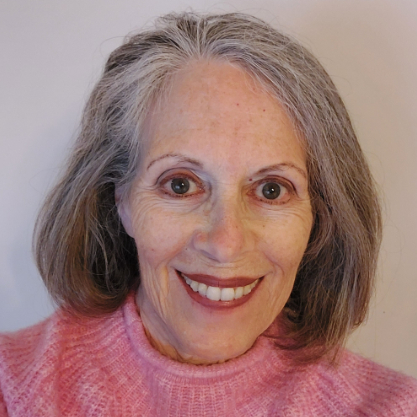
During this opening workshop of our series, Vincentia Schroeter will share her personal journey and passion for somatic psychotherapy, setting the stage for a transformative learning experience. This session introduces the fundamental concepts of somatic therapy and outlines the comprehensive structure of the training, encompassing three dynamic modules.
Vincentia will discuss the unique contributions from various faculty members, each bringing specialized techniques and approaches tailored to diverse therapeutic needs. She will explain the distinct advantages of somatic therapy compared to traditional talk therapy and delve into the importance of trauma-focused care, distinguishing between developmental and acute trauma and how these impact the therapeutic process.
A key component of this workshop is understanding the 'window of tolerance' in the autonomic nervous system and its significance in managing trauma responses. Participants will engage in an experiential activity to learn how to assess stress on a body level, providing practical skills applicable in therapy sessions.
Vincentia will also guide participants on how to introduce somatic techniques into their therapy practices effectively. This includes going at a pace that is comfortable for clients and using one’s own body awareness to enhance the therapeutic relationship.
The workshop will conclude with a summary and an open Q&A session, allowing for deeper discussion and clarification of concepts introduced. This introductory session is designed for therapists at all levels of experience, from those new to somatic techniques to seasoned practitioners seeking to integrate new methods into their work.
Sep 24 (Tue)
Frank Anderson
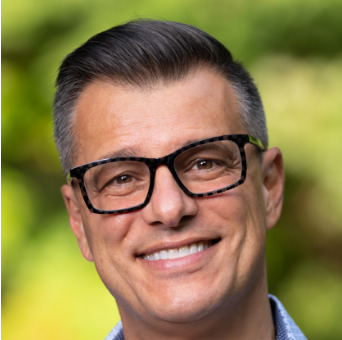
In this engaging workshop, Dr. Frank Anderson will guide you through the complex landscape of trauma from a neurobiological perspective, focusing on the underlying mechanisms of PTSD and dissociation. Participants will explore the nuances of the body’s survival responses—including fight, flight, freeze, and others—and their impact on self-identity and trauma.
Key Components of the Workshop:
1. Understanding the Neurobiology of PTSD and Dissociation:
- Delve into how trauma affects brain function and behavior, and how these alterations manifest in trauma-related disorders.
- Discuss the relationship between self-identity and trauma, with an emphasis on fostering empathy and compassion. This segment will also introduce an exercise that will be further explored in Practice Circles.
2. Analyzing Extreme Reactions and Responses:
- Witness two live mini-demonstrations, each lasting 15 minutes, showcasing hyperactivated and hypoactivated responses from individuals experiencing extreme emotional reactions.
- Dr. Anderson will explain the interventions used during these demonstrations, providing insight into their practical applications in therapy.
3. Exploring Preverbal and Attachment Trauma:
- Investigate trauma that occurs before language development and its long-term effects on attachment and relational patterns.
4. Integrating Trauma Models with Somatic Techniques:
- Learn how to effectively integrate various trauma therapy models with somatic approaches, enhancing therapeutic outcomes by addressing both mind and body components.
This workshop is designed for therapists seeking to deepen their understanding of the biological underpinnings of trauma and to enhance their therapeutic techniques with a somatically integrated approach.
Oct 1 (Tue)
Janina Fisher

This workshop, led by Janina Fisher, focuses on the relationship between trauma and bodily responses, providing insights into the neurobiological underpinnings of trauma. The session will highlight how therapists can use the body’s wisdom in the healing process.
-
Core Concepts Covered:
- The Triune Brain: The structure of the brain and its different parts’ responses to trauma will be outlined, providing a foundation for understanding clients' reactions during stressful events.
- Neurobiology of Trauma: Changes in the brain resulting from traumatic experiences and their influence on behavior and emotional regulation will be explored.
- Dynamics of Post-Traumatic States: The workshop will explain the states of hyper-arousal and hypo-arousal common in trauma survivors, including their symptoms and impacts on daily functioning.
- Non-verbal Body Memory: The storage of trauma in non-verbal body memory and its significance in somatic therapy will be highlighted.
- Window of Tolerance: The concept of the window of tolerance in relation to the autonomic nervous system (ANS) and its relevance in maintaining emotional and physiological balance will be presented.
- The Triggering System: The triggers that can lead to traumatic re-experiencing and strategies for managing these in therapeutic settings will be outlined.
- Top-Down and Bottom-Up Interventions: Cognitive (top-down) interventions contrasted with somatic (bottom-up) approaches will be presented, including guidelines on when and how to use each effectively.
- Using the Body as a Source of Information: Techniques for helping clients tap into their bodily sensations as a source of information and a path to recovery will be covered.
- Brief Introduction to the ANS: A concise overview of the autonomic nervous system, emphasizing its role in trauma response and recovery, will be included.
The workshop is designed to provide theoretical knowledge and practical understanding through discussions and demonstrations, guided by Janina Fisher’s expertise. Participants will gain the tools necessary to apply body-based techniques in their therapeutic approaches, enhancing their ability to support trauma recovery.
Oct 8 (Tue)
Vincentia Schroeter

In this dynamic session led by Vincentia Schroeter, participants will delve into the critical aspects of somatic therapy that help release stored body energy. This workshop builds on the foundational knowledge established in the first three sessions and seeks to consolidate key teachings from Vincentia, Janina Fisher, and Frank Anderson.
Vincentia will offer a comprehensive summary of the previous content and introduce advanced strategies to effectively address and manage client objections to somatic work. Understanding client resistance is crucial for fostering a therapeutic environment conducive to somatic healing.
An essential part of this workshop will focus on the role of touch in somatic therapy, discussing ethical considerations and anatomical insights. This segment will help therapists understand the powerful impact of physical interaction within the therapeutic boundaries.
A highlight of the session is the experiential learning segment using Bioenergetics exercises designed by Vincentia. Participants will engage in activities such as the 'pillow toss' exercise to help identify and localize body tension. There will be opportunities to observe or participate in demonstrations, especially with individuals who might be triggered by such exercises, providing real-time insights into handling intense emotional responses.
The workshop will also preview the upcoming content in Module Two, which covers a range of somatic techniques including Polyvagal Theory (PVT), integration of PVT with Internal Family Systems (IFS), Sensorimotor Psychotherapy, insights from an interview with Gabor Maté, Somatic Experiencing (SE), Breathwork, and Mindfulness.
The session will conclude with an open Q&A segment, allowing participants to ask questions and clarify any doubts, ensuring a thorough understanding of the techniques and concepts discussed. This workshop is designed to deepen your practical skills and theoretical knowledge, equipping you with the tools to unlock and manage the energy stored in the body through somatic practices.
Oct 15 (Tue)
Deb Dana
Join Deb Dana for an insightful workshop on the practical applications of Polyvagal Theory in therapeutic settings. This session will explore how an understanding of the nervous system can significantly enhance therapeutic outcomes, particularly for clients dealing with emotions and trauma.
Deb Dana will start with an introduction to Polyvagal Theory, highlighting its emphasis on the nervous system's crucial role in shaping our experiences of safety and threat. She will discuss the three organizing principles of the theory, providing a foundational understanding that will inform the rest of the session.
The workshop will include a detailed overview of the nervous system, helping participants appreciate its complexity and the pivotal role it plays in emotional regulation and trauma response. This understanding is key to applying Polyvagal Theory effectively in therapeutic practices.
A central focus of the session will be on "Creating Anchors and Touchstones." Deb will guide participants on how to establish personal anchors—relationships or memories that provide safety and grounding. Additionally, she will discuss how to use touchstones, which are physical objects or reminders that can help individuals return to a state of regulation during times of distress.
Applying theory to therapy will be thoroughly covered, with Deb illustrating how therapists can use insights from Polyvagal Theory to enhance their therapeutic relationships and techniques. This segment will emphasize the importance of recognizing and responding to clients' physiological states to foster a sense of safety and connection in therapy.
A live demonstration will provide a real-time example of how Polyvagal Theory can be integrated into therapeutic practice, offering participants a clear, practical perspective on the approaches discussed.
The workshop will conclude with a Q&A session, allowing for an interactive discussion where participants can ask questions, seek clarification, and discuss their insights based on the day’s learning.
This workshop is ideal for therapists who wish to deepen their understanding of Polyvagal Theory and learn concrete tools to improve their practice, making therapy a more dynamic and responsive experience for their clients.
Oct 22 (Tue)
Alexia Rothman
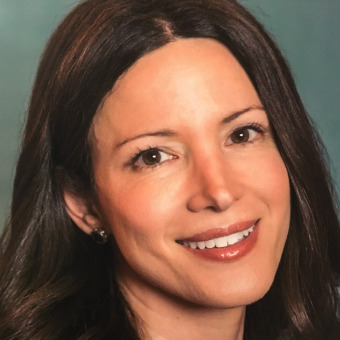
Oct 29 (Tue)
Jacqueline Compton
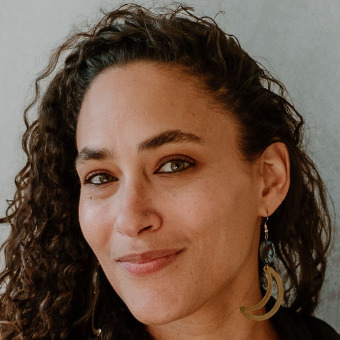
Explore the profound impact of incorporating the body into therapeutic practice with Jacqueline Compton in this transformative workshop on Sensorimotor Psychotherapy. This session invites participants on a journey towards self-awareness and mastery over somatic techniques that tap into the body's inherent wisdom.
Jacqueline will delve into the foundational aspects of Sensorimotor Psychotherapy, emphasizing how this approach utilizes the body as a primary entry point in the healing process. By focusing on the body's wisdom, participants will learn how to access deep-seated emotional responses and begin the process of transformation from within.
Key aspects of the workshop include:
- Developing Somatic Inquiry Skills: Learn to engage with and interpret the body's signals and messages to better understand clients' experiences and challenges.
- Understanding Bottom-Up Processing: This approach integrates the body's sensory experiences with cognitive processes, facilitating a holistic healing environment.
- Cultivating Presence and Mindfulness:Enhance your ability to remain present and connected in therapeutic settings, improving both personal and client outcomes.
- Deepening Self-Reflection: Through exercises in curiosity and mindfulness, participants will increase their capacity for self-awareness, a critical skill in fostering personal and client growth.
The session will begin with a centering practice that connects participants to the earth, grounding them in preparation for deeper exploratory work. A pivotal part of the workshop will be a 10-minute demonstration addressing common challenges such as feeling overwhelmed by bodily awareness or unsure of how to connect with the body. Following the demo, there will be an interactive discussion with the client about their experience, providing insights into how these techniques can be adapted and applied.
Throughout the workshop, participants will engage in various experientials designed for the whole group. These activities will not only demonstrate the practical application of Sensorimotor Psychotherapy techniques but also allow participants to experience firsthand the transformative potential of engaging the body in therapeutic work.
This workshop is an excellent opportunity for practitioners looking to deepen their understanding of somatic practices and integrate them effectively into their therapeutic repertoire. Join Jacqueline Compton to explore how the nuanced interplay of body and mind can lead to profound client transformations.
Nov 5 (Tue)
Gabor Maté + Vincentia Schroeter


Workshop 8 (5.11) with Gabor (ET time zone):
11:00 - 11:30 - Guided Somatic Explorations
11:30 - 12:20 - Practice Circles
12:20 - 12:35 - Break
12:35 - 13:00 - Workshop: Vincentia Schroeter
13:00 - 14:30 - Interview: Vincentia Schroeter + Gabor Maté
Join us for a compelling session featuring Vincentia Schroeter and renowned author and speaker Gabor Maté. This workshop is structured into two parts, beginning with a 30-minute presentation by Vincentia Schroeter, followed by an insightful interview with Gabor Maté discussing his pivotal work in "When the Body Says No."
Vincentia Schroeter (12:35 - 13:00 ET):
Vincentia will set the stage with a foundational presentation on the intersection of biology and stress, and how relationships impact our physiological state. Her talk will cover:
- The Biology of Stress: Understanding how chronic stress affects our bodies and the role of the nervous system in managing stress.
- The Biology of Relationship: Exploring how our interactions and emotional connections influence our health and stress levels.
- The 7 A’s of Healing: An overview of these crucial steps in the healing process, emphasizing their relevance in somatic therapy.
- An introduction to Somatic Therapy principles, illustrating how this modality engages the body in the healing process, particularly in relation to stress and trauma.
Gabor Maté + Vincentia Schroeter (13:00 ET):
The second half of the workshop features a dynamic interview with Gabor Maté, led by Vincentia Schroeter. They will delve deep into the themes of Maté’s book "When the Body Says No," exploring the critical links between emotional stress, repression, and the manifestation of physical illness. Gabor Maté will share insights from his extensive research and clinical experience, discussing:
- How unresolved emotional issues impact health, leading to chronic illness and autoimmune diseases.
- Strategies for recognizing and interrupting patterns of stress and repression that compromise our health.
- The importance of awareness, compassion, and understanding in healing and maintaining wellness.
This interview will also address practical applications of these concepts in therapy, providing therapists with tools to help clients connect their emotional and physical health.
The session promises to be an enriching experience, offering profound insights into the complex relationship between our emotions, our bodies, and our health. It is an essential workshop for healthcare professionals, therapists, and anyone interested in the profound impact of emotional health on physical well-being.
Nov 12 (Tue)
Liana Netto
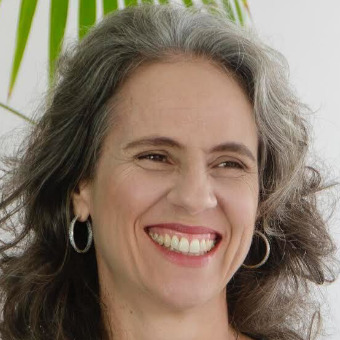
This workshop presents an in-depth exploration of Somatic Experiencing (SE), a body-oriented therapeutic approach focused on relieving and resolving the symptoms of trauma. Led by Liana Netto, the session will cover the fundamental principles of SE, providing therapists with practical tools and strategies to enhance the healing process for trauma survivors.
-
Key Concepts and Practices:
- Basics of Somatic Experiencing: The session will cover the foundational elements of SE, including its core principles and distinctive approach compared to other trauma therapies.
- Nervous System Curve: The workshop will explain the natural arc of the nervous system's response to stress and trauma, and how SE aims to restore balance to these responses.
- Management of Fight, Flight, and Freeze Responses: The session will explore techniques that assist clients in regulating and resolving the typical trauma reactions of fight, flight, and freeze.
- Orienting Response: The orienting response in trauma therapy will be explained, which helps clients become aware of their environment to ground themselves in the present moment.
- Healthy Aggression: The concept of healthy aggression will be presented as a therapeutic tool, which involves enabling clients to access and express pent-up survival energies in a controlled manner.
- Integration and Pendulation: The workshop will cover these two critical SE techniques. Pendulation involves moving clients between states of dysregulation and regulation to teach the nervous system to manage arousal autonomously, while integration focuses on incorporating these experiences into a cohesive whole.
- Timeline and Cue Processing for Trauma: The use of a timeline as a practical tool to process trauma, especially shock trauma, will be detailed. This method helps clients map out their traumatic experiences and systematically work through them.
This session will equip therapists with a deeper understanding of Somatic Experiencing and effective strategies for addressing trauma, utilizing the body’s innate wisdom and resilience to facilitate recovery in a supportive and compassionate manner.
Nov 19 (Tue)
Giten Tonkov
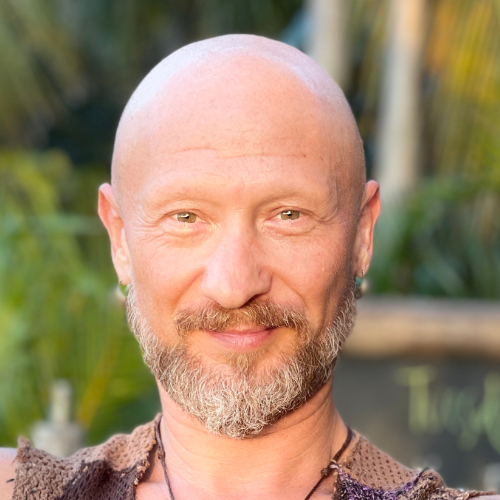
Dive deep into the transformative practice of Biodynamic Breathwork in this comprehensive workshop led by Giten Tonkov. This session is meticulously designed to equip therapists and counselors with the knowledge and skills needed to incorporate breathwork into their therapeutic practices, specifically for trauma release.
Didactics:
Giten Tonkov will start the workshop with an educational segment explaining the fundamentals of Biodynamic Breathwork. This will include:
- An overview of what Biodynamic Breathwork is, highlighting the six core elements and the underlying supporting principles that guide the practice.
- Techniques such as working with the 'felt sense,' which involves tuning into one's innate bodily sensations to process emotions and traumas.
- The concepts of pendulation and titration in therapy, which help clients manage their emotional experiences without becoming overwhelmed.
- Methods for identifying and tracking bodily sensations and the specific language that can be used to articulate these experiences, which are crucial for staying present and engaged during therapeutic sessions.
Guided Experiential:
Following the didactic portion, participants will engage in a guided experiential session. This practical component allows participants to apply the techniques discussed, focusing on how to use breathwork to access and release stored trauma in the body. This session is designed to be a personal exploration, offering participants a first-hand experience of the healing potential of Biodynamic Breathwork.
Sharing & Q&A:
The workshop will conclude with a sharing session and a Q&A, where participants can discuss their experiences and insights gained during the experiential learning. This segment provides an opportunity for participants to clarify their understanding, ask questions, and discuss how to effectively integrate these techniques into their professional practice.
This workshop is an invaluable resource for therapists looking to broaden their therapeutic tools with effective, body-centered techniques for trauma release. Join Giten Tonkov to explore how Biodynamic Breathwork can enhance your therapeutic approach and help your clients achieve profound healing and transformation.
Nov 26 (Tue)
Linda Thai
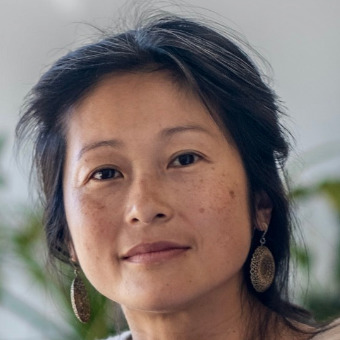
This workshop, presented by Linda Thai, delves into the effective integration of somatic therapy techniques within trauma treatment contexts. It compares traditional phase-oriented trauma treatment with phase-oriented somatic trauma treatment, highlighting the unique aspects and benefits of incorporating somatic practices.
- Phase-Oriented Trauma Treatment vs. Somatic Trauma Treatment: This section elucidates the differences and similarities between traditional phase-oriented trauma treatment and its somatic counterpart. It will explore how somatic methods can enhance the healing process by engaging the body's own wisdom and capacity for self-regulation.
- Preparation for Trauma and Somatic Trauma Treatment:
- Addressing Readiness: Strategies for preparing clients who may not initially be ready for somatic psychotherapy, focusing on gentle introductions and building trust.
- Reconnecting with the Body: Techniques for helping clients who are disconnected from their bodies, facilitating a reconnection that can empower them to engage more fully with somatic therapy.
- Mindfulness for Trauma: Introduction of mindfulness practices tailored for trauma survivors, aimed at enhancing the presence and awareness of trauma symptoms without overwhelming the client.
- Somatic Techniques to Regulate the Nervous System: The workshop will cover various somatic techniques designed to help regulate the nervous system, providing participants with practical tools to calm, soothe, and stabilize clients affected by trauma. This includes demonstrations of specific interventions that can be applied directly in therapy sessions.
Linda Thai's workshop is designed to equip therapists with a deeper understanding and practical skills necessary for integrating somatic therapies into their practice. By the end of this session, participants will have a comprehensive toolkit for addressing the complexities of trauma through a somatic lens, enhancing therapeutic outcomes and promoting deeper healing.
Dec 3 (Tue)
Vin Schroeter + Bessel van der Kolk + Peter Levine


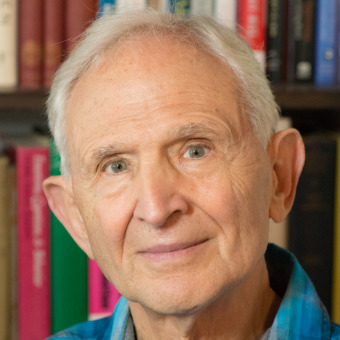
Workshop 12 (3.12) with Bessel and Peter Levine (ET time zone):
11:00 - 11:30 - Guided Somatic Explorations
11:30 - 12:20 - Practice Circles
12:20 - 12:30 - Break
12:30 - 13:30 - Interview: Vincentia Schroeter + Bessel van der Kolk
13:30 - 14:30 - Interview: Vincentia Schroeter + Peter Levine
Join us for a unique opportunity to engage directly with leading figures in the field of somatic therapy. This interactive workshop, hosted by Vincentia Schroeter, features in-depth interviews with Bessel van der Kolk and Peter Levine, each a pioneer in their own right. This session is designed to adapt to the specific interests and questions of participants, ensuring a highly relevant and personalized learning experience.
Interactive Format:
- Vincentia Schroeter + Bessel van der Kolk (12:30 ET): The first hour of the workshop will feature an interview with Bessel van der Kolk, renowned for his groundbreaking work in understanding and treating traumatic stress. Participants will have the chance to ask questions directly, allowing for a deep dive into topics that matter most to them, whether it's about the latest research in trauma therapy, specific treatment methodologies, or practical applications in various therapeutic settings.
- Vincentia Schroeter + Peter Levine (13:30 ET): Following the session with van der Kolk, Vincentia will speak with Peter Levine, the developer of Somatic Experiencing. This segment offers another hour of rich discussion focused on Levine's approach to healing trauma through body awareness and the mobilization of somatic resources. Participants are encouraged to bring forward their queries and scenarios to be addressed by Levine, providing a rare opportunity to gain insights directly from his extensive experience.
Dynamic Engagement:
This workshop will thrive on the dynamic interaction between the participants and these distinguished experts. Prior to the workshop, participants will be invited to submit their questions, which will guide the direction of the interviews. This ensures that the content is highly tailored and immediately applicable to the needs of the attendees.
Outcome:
By the end of this session, participants will have gained a deeper understanding of key concepts and techniques in somatic therapy, enriched by personal interactions with two of the most respected practitioners in the field. This workshop is an exceptional chance to receive mentorship and guidance from leading experts, enhancing the professional practice of attendees in profound ways.
This is an essential session for anyone in the field of trauma therapy, offering direct access to pioneering research and clinical wisdom that can transform therapeutic practices.
Dec 10 (Tue)
Vincentia Schroeter

The final workshop in our series, led by Vincentia Schroeter, is designed to encapsulate and reflect on the learnings from the entire training. This session is intended not only as a recap but also as an empowering conclusion that equips participants with a clear path forward in their practice of somatic therapy.
Summary of the Training:
Vincentia Schroeter will open the workshop with a comprehensive summary of the key points and insights covered throughout the training. This overview will help solidify the knowledge gained and highlight the interconnectedness of the various topics discussed.
Experiential with the Body:
Participants will engage in an experiential activity focusing on bodily awareness, exploring what aspects of somatic therapy they are most drawn to. This will aid in personalizing their learning experience and identifying the techniques that resonate most with their own therapeutic style.
Choosing the Right Tools:
A significant part of the workshop will be dedicated to discussing how to select the appropriate somatic tools for specific clients and situations. Vincentia will provide guidance on how to match therapeutic techniques with client needs effectively, ensuring that therapists feel confident in their ability to tailor their approach.
Managing the Abundance of Techniques:
With so many techniques introduced, it can be overwhelming to integrate them all. This segment will focus on how to manage this abundance without feeling overwhelmed. Practical tips will be provided on how to gradually incorporate new methods into practice and how to stay grounded in core somatic principles.
Somatic Therapy DO’s and DON’Ts:
Participants will learn the essential DO’s and DON’Ts of somatic therapy, which will serve as a quick-reference guide to maintaining ethical, effective, and sensitive practice. These guidelines will help prevent common pitfalls and enhance the therapeutic relationship.
Exploring Somatic Therapy Further:
Looking beyond the training, Vincentia will discuss possible next steps for those interested in deepening their engagement with somatic therapy. This may include advanced courses, certification opportunities, or specific techniques to explore in more depth.
Closing Ritual:
The workshop will conclude with a specially designed closing ritual to mark the end of the training journey. This ritual will help participants process their experiences, celebrate their progress, and transition back to their professional environments with renewed inspiration and tools.
This final workshop is an opportunity to reflect, consolidate, and anticipate the future of each participant’s practice. It promises to be a fitting end to a transformative journey, leaving therapists well-prepared to integrate somatic therapy into their work effectively.

Date & time
Sessions dates:Tuesdays — September 17, 24, October 1, 8, 15, 22, 29, November 5, 12, 19, 26, December 3, 10.
-
All the Sessions will be at:
- 08:00-11:30am PT (Los Angeles)
- 11:00-14:30 ET (New York)
- 16:00-19:30 BST/GMT (London)*
- 17:00-20:30 CEST/CET (Warsaw)*
- 15:00-18:30 GMT (London)*
- 16:00-19:30 CEST/CET (Warsaw)*
*Due to the time change in Europe, we will start the Workshop on October 29 one hour earlier in Europe.
You can find a detailed schedule of each session for different time zones in the FAQ section.
Check the training calendar and see all the events in your timezone

Skills and tools that will be presented and practiced include:
- Working safely with both big “T” and small “t” trauma.
- Identifying body memories that the client may not be able to verbalize (and accessing those memories safely).
- Gradually introducing (titrating) mindful interventions for a client who may find it too overwhelming to slow down.
- Helping clients understand that confusing symptoms are normal and building trust in the therapeutic relationship.
- Understanding what a "bottom-up" versus a "top-down" approach is and how they can be integrated.

- Developing an understanding of how dissociation can aid in survival.
- Recognizing transference and countertransference as they happen somatically.
- Explain how trauma affects the brain and the body’s survival responses to stress.
- Be able to recognize somatic manifestations of trauma & shock on the body.
- Explain the importance of trauma release within the window of tolerance.
- Identify different types of trauma and connect them to mental and physiological symptoms.

Helping clients bridge Mind and Body
As a mental health professional, you may understand the importance of incorporating somatic work into therapy sessions. However, it can be challenging to implement new strategies into your practice. Individuals with a history of trauma often stay in their heads and are hesitant to try new things, particularly when it involves connecting with their bodies.
They may have, in fact, actively disconnected from their bodies to avoid distressing emotions and sensations. With proficiency in somatic modalities, the therapist can support clients in developing (or returning to) a trusting relationship with their bodies.
The challenge of using somatic techniques in therapy becomes even greater with the rise of online therapy. When you and your client are physically far away from each other, how can you effectively work with the body? Pioneering developers of somatic modalities have found that not only is it possible to do so, but it is essential to have a somatic lens when doing trauma work, even during online therapy.

Our program synthesizes the core concepts of leading somatic modalities. With so many trauma trainings on offer, we aim to provide a comprehensive curriculum on how our body heals from trauma, and how understanding our nervous system shapes various cutting-edge therapy modalities.
By presenting an array of somatic approaches, we will focus on teaching specific techniques that work best with complex trauma. Our primary focus is on tools that are adaptable to various settings and issues like anxiety disorders, mood disorders, PTSD and cPTSD (amongst others).
Another barrier that prevents mental health professionals from using somatic techniques is the misconception that they need to master an entire modality before including the body in therapy. While it is valuable to master a somatic modality, there is also significant merit in an integrative approach. It is typical for clients to respond differently to various methods, and for somatic methods to be more or less effective at different times. Therefore, an approach that combines multiple techniques is becoming increasingly popular among professionals.
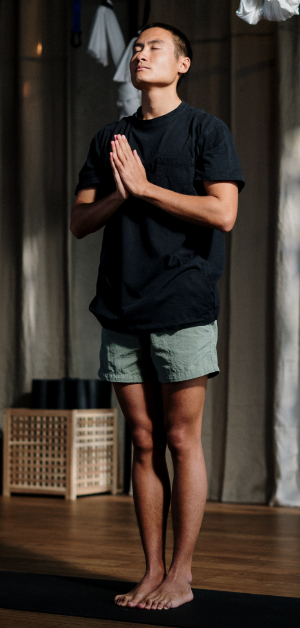
A Comprehensive Curriculum of Somatic Approaches
This Somatic Therapy Training introduces the basic principles that connect current emerging research from a variety of fields:
- The neurobiology of the mind and the brain,
- Models that help understand and regulate the autonomic nervous system (Polyvagal theory and the window of tolerance),
- Attachment theory,
- Developmental trauma (how the body holds non-verbal memory),
- Mindfulness.
The program will also emphasize the reasons for using Somatic Therapy, including its history, efficacy, and current research. It will explain why the somatic approach is becoming not only more relevant but also essential in accessing the body for healing trauma and overall wellness.
During each workshop, our teachers will provide practical instruction; including demonstrations, experiential learning, somatic techniques, Q&A, group work, and sharing.

Parts work
This training is parts work informed. It incorporates the understanding that we all have multiple, non-pathologized parts of ourselves. Working with parts is an important aspect of effective trauma healing, and it will be addressed throughout the training. At Life Architect, we promote Internal Family Systems (IFS), a parts work therapy modality developed by Richard Schwartz. Some of our speakers - Frank Anderson, Janina Fisher, Alexia Rothman, and Deb Dana, among others, are IFS-informed or trained and will incorporate the multiplicity paradigm into their teachings.
No prior IFS training or experience is required to participate in this training. However, if you'd like to learn more about IFS before embarking on this journey with us, you will receive free access to our 12-day online course "Introduction to Internal Family Systems" after enrolling. More information is available in the "bonus" section.
If you are already IFS-informed, this training will greatly enhance your ability to work with parts. The chosen modalities and somatic techniques work well with the IFS protocol.

![Somatic Approaches to Psychotherapy [LP] 158](https://lifearchitect.com/app/files/2024/04/3mcs_tab_reg.png)
![Somatic Approaches to Psychotherapy [LP] 157](https://lifearchitect.com/app/files/2024/04/3mcs_mob_reg.png)

Who is this Somatic Therapy Training for?
This program is intended for mental health practitioners who wish to integrate somatic strategies into their trauma-healing practice.
While it is designed with mental health professionals in mind, other healthcare professionals would also benefit from this program: physicians, nurses, movement therapists, social workers, coaches, yoga therapists, breathworkers, psychedelic therapists, bodyworkers, psychologists, art and music therapists.
The techniques taught in this training are for educational purposes only and should be used by qualified professionals within the scope of their practice.
Participants are responsible for their own clinical use of these techniques and must adhere to professional standards and local regulations. Life Architect is not liable for the misuse of these techniques or any resulting harm to clients. This training does not constitute certification or licensure in somatic therapy.

How it works
All events are taking place live, on the Zoom platform.
You will receive the link to the Zoom meeting along with the password one day before each session. There will be technical support available.
The Workshops and Guided Somatic Exploration sessions will be recorded. In 5 days after live session, you will receive access to the recording. We won't record Connection Circles meetings.
The recordings will be available in your Life Architect Account, so you can go through them at your own pace. Recordings will be available with no time limits only for those who have enrolled, with no option of purchasing access after the training ends.
Additionally, we will provide access to extensive handouts (ready for printing or using on your laptop or smartphone) to make it easier for you to engage with the theory in the most convenient way for you.
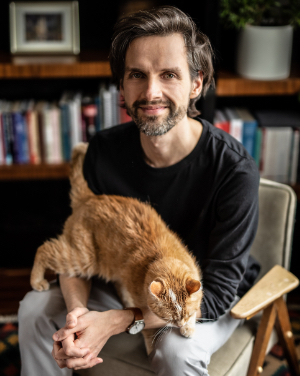
The Life Architect team
Life Architect is a therapist educational organization that is dedicated to helping mental health professionals grow professionally. Our overall mission is to create innovative models of education and therapy that support mental health professionals in coping with emotional problems and unlocking their full potential in their practices.
Our team of therapists, educators, and researchers is committed to advancing the field of therapy and education through ongoing research and the development of new methodologies.
We offer a variety of programs and services specifically designed for mental health professionals, including online and onsite workshops, certified training programs, and retreats.
Opinions about the first edition of our training
Meet Sally, Michael and Andreia
- our Program Creators

Sally Bubbers
Program consultant
Sally Bubbers MSc, is a UKCP psychotherapeutic counselor who works with adults who have experienced abuse and developmental trauma, resulting in physical symptoms and confusing behaviors. She is a Level 3 trained IFS Therapist, Approved Certification Consultant, and Programme Assistant, as well as a Level 3 trained Certified Advanced Sensorimotor Psychotherapist and Level 3 trained in DBR. She is passionate about sharing knowledge and hope, through workshops, book chapters, and podcasts.

Michael Pasterski
Program director
Michael is a Certified IFS Practitioner from Poland. He is the founder and CEO of Life Architect. He is the originator of this training and a leader of the whole training team. His role is to connect all of the dots to ensure the best possible experience for the participants. Michael is the author of "Insight. Road to Mental Maturity" - a book about the skill of looking into our inner worlds. Over the past 10 years, he published more than 400 articles, which attract the attention of more than one million readers a year.

Andreia Pacheco
Lead Program Facilitator, Community coordinator
Andreia Pacheco, Ph.D., is a Portuguese psychologist and psychotherapist, certified L3 Internal Family Systems (IFS) therapist, and an IFS-I clinical approved consultant. She has also completed her Somatic IFS and Intimacy from the Inside Out (IFIO) post-advance training. She has a background as a published international researcher and a University Professor and has supported many IFS (L1 and L2) and IFIO international trainings as a Program Assistant.
"We designed the program with the intention of avoiding overwhelming you with information. You will have ample opportunities to experience the presented techniques and begin applying them in your therapy practice."

Up to 7 days after the first workshop, if you are not completely satisfied just let us know about it. We will give you a full refund. You are not required to give any reason. You have nothing to lose!

Practice Circles & Practice Facilitators
Meet with your fellow students once a week to practice and support each other.
Learning and healing experiences are most effective when they take place in a community. Each workshop will end with a 50-minute small group Practice Session (8-10 participants) guided by a Practice Facilitator, a mental health professional trained in somatic therapy. Throughout the whole training, you will meet with the same group (and the same Practice Facilitator), having the opportunity to create relationships with like-minded professionals.
Practice Circles are an experiential component of our training, designed to foster a collaborative learning environment where participants can engage in practical skill development through interactive exercises. These sessions offer a unique opportunity for peer feedback and reflection, allowing participants to refine their techniques in a supportive and confidential setting. Through these sessions we aim to facilitate an experience of community, hands-on practice, and the safe exchange of ideas, ensuring a holistic learning experience for mental health professionals.
Meet our Practice Facilitators
Meet Mental Health Professionals with training and experience in using somatic modalities for trauma therapy who will support you during Practice Circles.
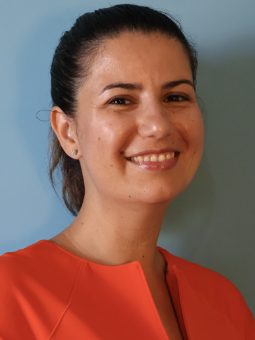
Andreia Pacheco
IFS | Somatic IFS | Polyvagal Theory

Karla Amanda Brown
Couples | Touch | Psychedelic Therapy
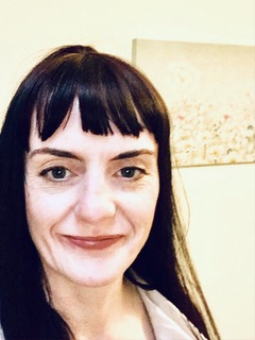
Zandra Bamford
IFS & Polyvagal Practices in Healthcare Systems
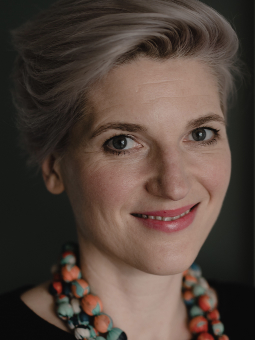
Margot Davidson
Sensorimotor Psychotherapy | IFS | Somatic IFS
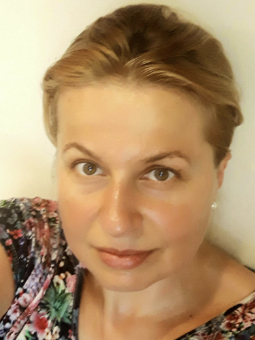
Denisa Udžanová
IFS | Somatic IFS
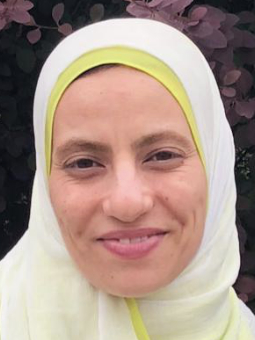
Hoda Refaat Mahfouz
Somatic Experiencing | IFS | EMDR | Psychodrama
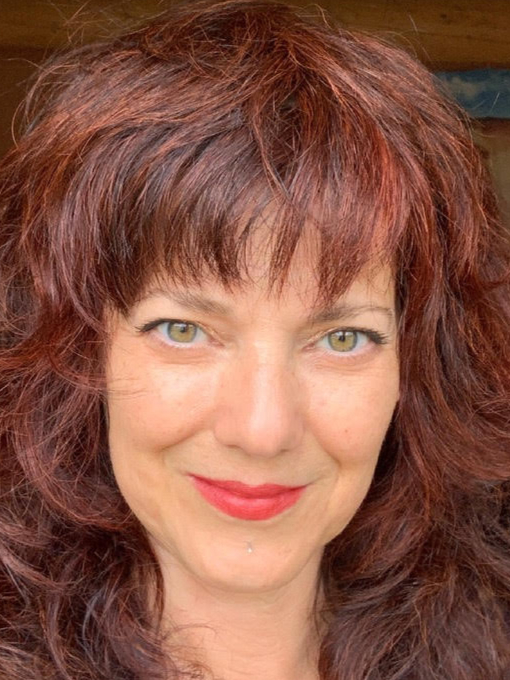
Shankari
IFS | Somatic IFS | Gestalt | Trauma Informed | Somatic EMDR | Psychedelic Integration
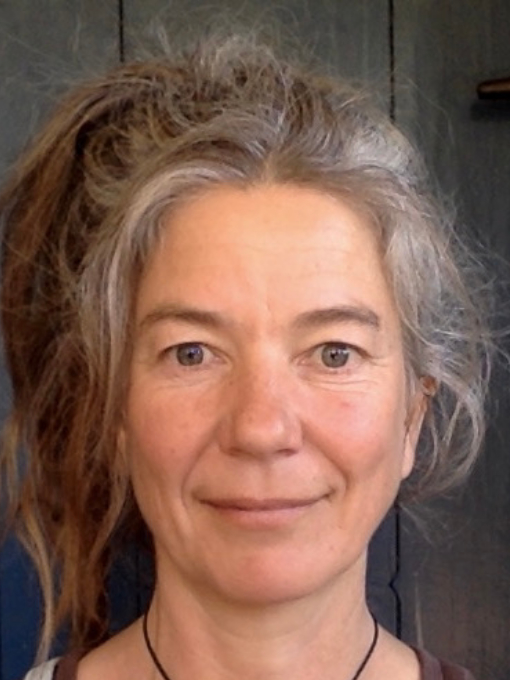
Lucie van Leeuwen
Somatic Yoga & TRE | Zen Coach | IFS | Relational coaching
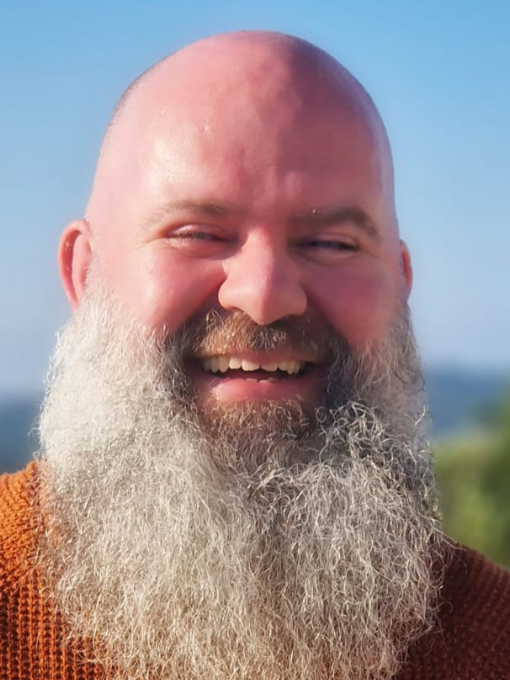
Stephen Brown
Compassionate Inquiry | Somatic Experiencing | IFS | Gestalt
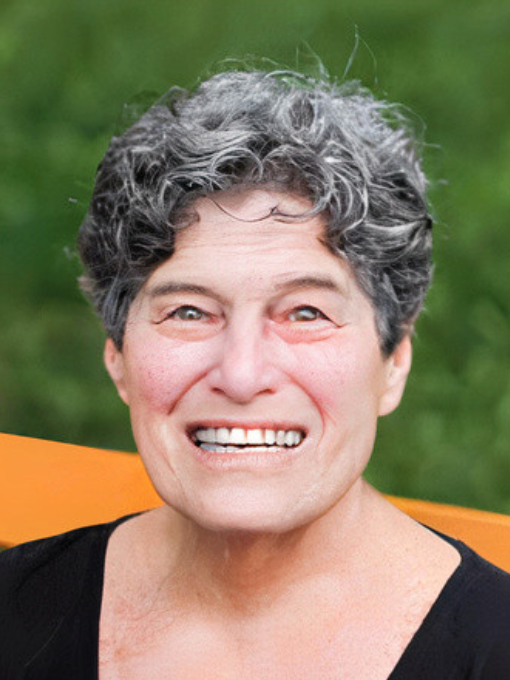
Judith Fischer
Somatic IFS | IFS | Dance & Movement Therapy
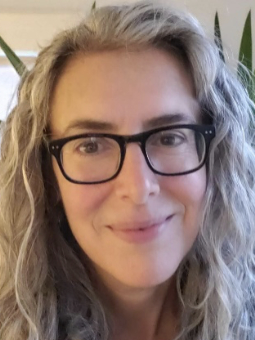
Deborah Jacobs
IFS | Somatic IFS | Somatic Experiencing | Art Therapy
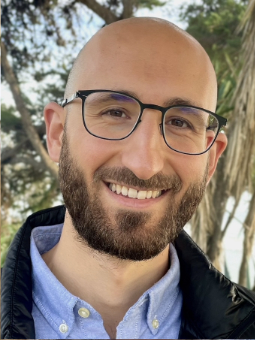
Stephen Toriello
Somatic IFS
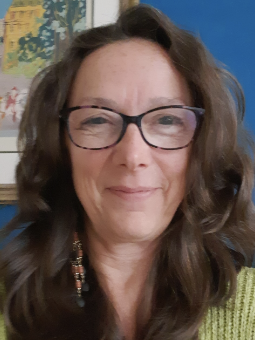
Rachael Culver Dodds
TRE | Somatic IFS | TRE
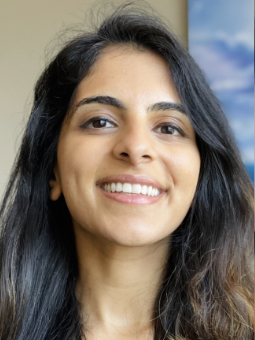
Meera Dhawan
Trauma-Informed Yoga Educator
(500 E-RYT) | Somatic Coach | Pranayama & Meditation
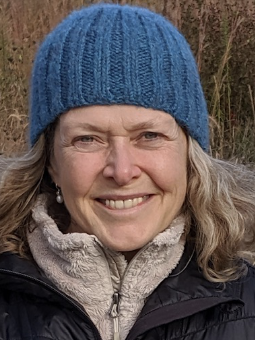
Corinne Peterson
IFS | Yoga Therapy

And more Practice Faciliators
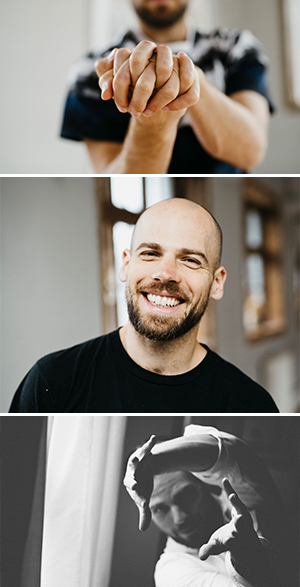
Guided Somatic Explorations
This training wouldn’t be complete without a space designated solely for movement and exploration of our bodies.
Every Tuesday, we will meet for a 30-minute live & recorded Guided Somatic Exploration session led by Elia Mrak,
a Qi-gong and dance teacher. During these sessions, he will guide you into a deep connection with your body, using different explorations inspired by modalities presented during workshops and other types of movement.
The goal of this experience is to open up to your body and create a deep relationship with it. Please note that these sessions are optional, and each one will be recorded for you to explore at your convenience (and as many times as you wish).
Elia Mrak
I am dedicated to the belief that everyone can dance, everyone deserves joy, and everyone can heal. I am a nervous system and trauma-informed educator trained in the fields of Dance, Body-Mind-Centering (pending), Qigong, Fitness, and bodywork/touch. And I use the integration of these practices to create safe spaces for individuals and communities worldwide.

Case Consultation
Calls in 2025
Just after the training ends, at the beginning of 2025, participants will be able to join three 2-hour Case Consultation Calls. These calls are designed to offer personalized guidance on specific issues related to somatic therapy that may arise in participants’ practices.
Before each session, participants are encouraged to submit their case descriptions and questions, allowing the teacher to thoroughly prepare and tailor their responses. This structured approach aims to support participants in effectively integrating somatic techniques into their practices, providing ongoing assistance even after the training concludes to address various challenges encountered when applying these techniques in real-world scenarios.
The Case Consultation Calls in 2025 will take place on Tuesdays: January 28 with Vin Schroeter, February 25 with Jacqueline Compton, and March 25 with Vin Schroeter from 11:00 to 13:00 ET (New York). You can find a detailed schedule for different time zones in the FAQ section.
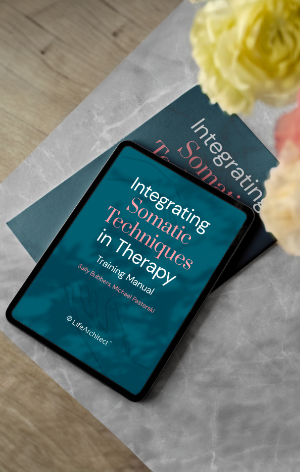
A comprehensive Training Manual
Our training manual is an invaluable companion throughout your learning journey. It not only covers theoretical foundations but also guides you through various somatic modalities and includes detailed descriptions of all practical exercises featured in the training.
Edited by an IFS and Sensorimotor Psychotherapist Sally Bubbers, this 67-page PDF manual is easy to use and filled with valuable content that enhances both understanding and application of somatic techniques in therapy. It’s structured to be your go-to resource, available whenever you need to revisit any part of the training.
The Training Manual is available in PDF format, which means you can use it however you find most convenient. You can open it on your computer or tablet, or print it out to always have it handy. The full version of the manual will be made available after the training ends.
![Somatic Approaches to Psychotherapy [LP] 146](https://lifearchitect.com/app/files/2024/04/la-3mcs-bonus-1920x678.png)
![Somatic Approaches to Psychotherapy [LP] 148](https://lifearchitect.com/app/files/2024/04/somatic_therapy_training_tablet.jpg)
![Somatic Approaches to Psychotherapy [LP] 150](https://lifearchitect.com/app/files/2024/04/somatic_therapy_training_mobile_phone.jpg)

Special bonuses worth $371
By enrolling in this Somatic Therapy Training now, you will also gain access to:
- A 12-day 'Introduction to Internal Family Systems' course, created by Michael Pasterski, founder of Life Architect and a Certified IFS Practitioner. IFS is an evidence-based therapy modality focusing on parts work, developed by Dr. Richard Schwartz. The course provides a comprehensive overview of this model, including extensive personal practice for you to experience parts work on yourself.
- An on-demand Janina Fisher's workshop 'Integrating Mind-Body Techniques into Talking Therapies'. In this workshop, Janina reviews recent neuroscience research that explains how traumatic experiences become embedded in both mind and body, extending the trauma far beyond the original events.
- A recording of the 1-day Summit 'Restoring Mind-Body Connection with Somatic Therapy'. This includes over 6 hours of videos featuring experts such as Janina Fisher, Giten Tonkov, Elia Mrak, Irina Diyankova, Tamu Thomas, and Vincentia Schroeter.
Continuing Education
For participating in our "Integrating Somatic Techniques in Therapy" training you can earn 25.5 CE hours granted by NBCC (Approval no. SP-4657). If you are unsure whether your state licensure board accepts NBCC CE hours, please contact them before purchasing.
CE hours will be awarded only for participation in the online workshop (we can’t offer it for watching the recordings). Guided Somatic Explorations sessions,
Practice Circles, and Case Consultations Calls do not count toward CE hours, but you are still welcome to participate in these meetings.
You can apply for CE hours until September 24th.
Ready to apply for CE hours?
1. Purchase the "Integrating Somatic Techniques in Therapy" training here
2. After your purchase, you’ll receive an email with the CE hours Application Form
3. Complete the form, and we’ll send you a confirmation along with a payment link
– there’s a $50 fee to cover administrative costs
Practice Circles, and Case Consultations Calls do not count toward CE hours, but you are still welcome to participate in these meetings.
1. Purchase the "Integrating Somatic Techniques in Therapy" training here
2. After your purchase, you’ll receive an email with the CE hours Application Form
3. Complete the form, and we’ll send you a confirmation along with a payment link
– there’s a $50 fee to cover administrative costs
Sign up for the interest list for the next edition.
-
PRICE
1087 USD
-
MODULE 1 / TBA
-
TRAINER / TBA
-
INTEREST LIST
Enrollment for the current "Integrating Somatic Techniques in Therapy 3-Month Online Training" is no longer available. You can still sign up for the interest list, and we will let you know about the next edition as soon as the details are set.
Name is required.E-mail is required.
Frequently Asked Questions
What time is it in my time zone?
PT time zone - Los Angeles:
- Standard Session
- 08:00 - 09:55 - Workshop
- 09:55 - 10:10 - Break
- 10:10 - 10:40 - Guided Somatic Explorations
- 10:40 - 11:30 - Practice Circles
- Session 8 (Nov 5) with Gabor Maté
- 08:00 - 08:30 - Guided Somatic Explorations
- 08:30 - 09:20 - Practice Circles
- 09:20 - 09:35 - Break
- 09:35 - 10:00 - Workshop: Vincentia Schroeter
- 10:00 - 11:30 - Interview: Vincentia Schroeter + Gabor Maté
- Session 12 (Dec 3) with Bessel van der Kolk and Peter Levine
- 08:00 - 08:30 - Guided Somatic Explorations
- 08:30 - 09:20 - Practice Circles
- 09:20 - 09:30 - Break
- 09:30 - 10:30 - Interview: Vincentia Schroeter + Bessel van der Kolk
- 10:30 - 11:30 - Interview: Vincentia Schroeter + Peter Levine
- Case Consultation calls on January 28, February 25, March 25:
- 08:00am - 10:00am
ET time zone - New York:
- Standard Session
- 11:00 - 12:55 - Workshop
- 12:55 - 13:10 - Break
- 13:10 - 13:40 - Guided Somatic Explorations
- 13:40 - 14:30 - Practice Circles
- Session 8 (Nov 5) with Gabor Maté
- 11:00 - 11:30 - Guided Somatic Explorations
- 11:30 - 12:20 - Practice Circles
- 12:20 - 12:35 - Break
- 12:35 - 13:00 - Workshop: Vincentia Schroeter
- 13:00 - 14:30 - Interview: Vincentia Schroeter + Gabor Maté
- Session 12 (Dec 3) with Bessel van der Kolk and Peter Levine
- 11:00 - 11:30 - Guided Somatic Explorations
- 11:30 - 12:20 - Practice Circles
- 12:20 - 12:30 - Break
- 12:30 - 13:30 - Interview: Vincentia Schroeter + Bessel van der Kolk
- 13:30 - 14:30 - Interview: Vincentia Schroeter + Peter Levine
- Case Consultation calls on January 28, February 25, March 25:
- 11:00am - 13:00
BST/GMT time zone - London:
- Standard Session
- 16:00 - 17:55 - Workshop
- 17:55 - 18:10 - Break
- 18:10 - 18:40 - Guided Somatic Explorations
- 18:40 - 19:30 - Practice Circles
- Session 7 (Oct 29) with Jacqueline Compton:
(due to the time change in Europe, we will start this workshop one hour earlier in Europe)- 15:00 - 16:55 - Workshop
- 16:55 - 17:10 - Break
- 17:10 - 17:40 - Guided Somatic Explorations
- 17:40 - 18:30 - Practice Circles
- Session 8 (Nov 5) with Gabor Maté
- 16:00 - 16:30 - Guided Somatic Explorations
- 16:30 - 17:20 - Practice Circles
- 17:20 - 17:35 - Break
- 17:35 - 18:00 - Workshop: Vincentia Schroeter
- 18:00 - 19:30 - Interview: Vincentia Schroeter + Gabor Maté
- Session 12 (Dec 3) with Bessel van der Kolk and Peter Levine
- 16:00 - 16:30 - Guided Somatic Explorations
- 16:30 - 17:20 - Practice Circles
- 17:20 - 17:30 - Break
- 17:30 - 18:30 - Interview: Vincentia Schroeter + Bessel van der Kolk
- 18:30 - 19:30 - Interview: Vincentia Schroeter + Peter Levine
- Case Consultation calls on January 28, February 25:
- 16:00 - 18:00
- Case Consultation call on March 25 (due to the time change in the USA, we will start this call one hour earlier in Europe):
- 15:00 - 17:00
CEST/CET time zone - Warsaw:
- Standard Session
- 17:00 - 18:55 - Workshop
- 18:55 - 19:10 - Break
- 19:10 - 19:40 - Guided Somatic Explorations
- 19:40 - 20:30 - Practice Circles
- Session 7 (Oct 29) with Jacqueline Compton:
(due to the time change in Europe, we will start this workshop one hour earlier in Europe)- 16:00 - 17:55 - Workshop
- 17:55 - 18:10 - Break
- 18:10 - 18:40 - Guided Somatic Explorations
- 18:40 - 19:30 - Practice Circles
- Session 8 (Nov 5) with Gabor Maté
- 17:00 - 17:30 - Guided Somatic Explorations
- 17:30 - 18:20 - Practice Circles
- 18:20 - 18:35 - Break
- 18:35 - 19:00 - Workshop: Vincentia Schroeter
- 19:00 - 20:30 - Interview: Vincentia Schroeter + Gabor Maté
- Session 12 (Dec 3) with Bessel van der Kolk and Peter Levine
- 17:00 - 17:30 - Guided Somatic Explorations
- 17:30 - 18:20 - Practice Circles
- 18:20 - 18:30 - Break
- 18:30 - 19:30 - Interview: Vincentia Schroeter + Bessel van der Kolk
- 19:30 - 20:30 - Interview: Vincentia Schroeter + Peter Levine
- Case Consultation calls on January 28, February 25:
- 17:00 - 19:00
- Case Consultation call on March 25 (due to the time change in the USA, we will start this call one hour earlier in Europe):
- 16:00 - 18:00
Who is the seller of this training?
Name of the seller: Life Architect Michał Pasterski Spółka Komandytowa (Company registered under laws of Poland)
- Address: ul. Narcyzowa 11, 60-175 Poznań, Poland
- National Court Register Number: 0000973301
- Tax Identification Number: 7792539585
- e-mail address: kontakt@lifearchitect.pl
- Phone: +48 518 501 701
The Seller is a company registered under the laws of Poland and issues VAT invoices in accordance with Polish law. If you are purchasing services from the Seller as an entrepreneur and you need a VAT invoice, consult your tax advisor on the necessary requirements for invoices for the purchase of services.
The GTC found on this website shall apply respectively, with the stipulation that Polish law shall apply to contracts concluded with the seller.
The Data Controller of your personal data is Life Architect Michał Pasterski Spółka Komandytowa based in Poznań, Poland. The owner of this website collects and transfers your personal data to the Data Controller as the processing entity, acting under documented instructions from the Data Controller. Information about the processing and protection of your personal data by the Data Controller can be found here: Market Place Information Clause.
Below you will also find the document outlining the terms under which our trainers will provide you with the training materials and recordings from the "Integrating Somatic Techniques in Therapy" training (commonly known as an End User License Agreement, or EULA). Please note that this document does not affect the workshop itself, including its schedule or delivery. If you agree with the content, no further action is required on your part. Please read the End User License Agreement.
Does it make sense for me to attend if I have taken your other courses?
Do I have to attend all the live meetings to receive the certificate?
If you are not applying for the CE hours, you do not need to be present at all live workshops. You can watch their recordings. After completing the training, you will receive a certificate of attendance from Life Architect (with no extra cost).
We do not offer CE hours for watching the recordings because NBCC credit cannot be provided for the recorded portions of the program. To receive CE hours for each workshop, you must participate in the live interactive online Zoom workshop.
